By Theresa Whitlock-Wild
Hello
First I am so sorry to hear that ALS has become a part of your journey. Thank you for reaching out to us. If you would like to speak over the phone, through email or over a video chat, please don’t hesitate to suggest some times and I would be more than happy to connect with you and offer advice that I have learned along the way, as well as point you to additional resources. I am sorry that our foundation is unable to help assist families outside of our service area of ID, MT, WA. However, I am happy to help assist in answering questions and to help find additional support.
The information below is something I forward to all the families that reach out to us. Matthew and I know all too well the difficulties that come with an ALS diagnosis. Below, you will hopefully find the information I am sharing with you as useful. Matthew, included in this email, and I co-founded Matt’s Place Foundation to help families in MT, ID and WA with accessibility in the home. We understand the overwhelming feelings and if you would like, feel free to reach out to him as well.
We also understand how difficult it is, to learn about all the different areas that a family needs to adapt to live with a disease such as ALS. You are welcome to share the entire email with family members if that is helpful. Also, please feel free to share my contact information. I am always happy to share what information I do have and to try to connect families with the resources that will help them along this journey:) Some of this information may be redundant. Some might not apply till later, and it is perfectly acceptable to want to pick and choose what works best for you and your family. I hope to offer information and support but also understand that I do not know everything either, and we are all learning as we go.
Non-profit Foundations –
Matt’s Place Foundation ( I am a bit partial to this one ) – This foundation can help with grant assistance for: exterior ramps, interior accessibility remodeling (i.e. bathroom remodeling, door widening etc) as well as assistance for rent and mortgages. We also have two single family homes, one in Coeur d’Alene ID and Spokane WA, for families to live in, free of charge, to help offset the additional and unexpected costs that occur with this disease. To apply for a grant, please visit our website! However, at this time we can only support families monetarily in Montana, Idaho, and Washington state but applying to live in the home is open to any and all across the country, with a first come, first serve basis. Please NOTE: We are unable to provide financial assistance to families living outside of our service area of MT, ID and WA.
) – This foundation can help with grant assistance for: exterior ramps, interior accessibility remodeling (i.e. bathroom remodeling, door widening etc) as well as assistance for rent and mortgages. We also have two single family homes, one in Coeur d’Alene ID and Spokane WA, for families to live in, free of charge, to help offset the additional and unexpected costs that occur with this disease. To apply for a grant, please visit our website! However, at this time we can only support families monetarily in Montana, Idaho, and Washington state but applying to live in the home is open to any and all across the country, with a first come, first serve basis. Please NOTE: We are unable to provide financial assistance to families living outside of our service area of MT, ID and WA.
Check out our Hope & Housing Series on our Youtube Channel with additional help for accessibility in the home and share with your family and friends!
ALSSO – This organization is based in Spokane WA. They are a wonderful resource for emotional support for the entire family. They host a hybrid support group and currently, there are many families in the Montana area that are attending virtually. These support groups are held the first Wednesday of every month. Cathey Priddy – catheypriddy@gmail.com and Desi Swenson – desis.alsso@outlook.com are the ladies who will gather the family in and welcome them with warmth and understanding. I highly suggest reaching out and attending at least one support group:)
This group also helps with grants towards wheelchair accessible vans, some caregiving support as well as some remodeling costs.
*** NOTE*** These two organizations also work closely with Spokane Catholic Charities. We often collaborate and try to offer additional grant funds to help offset the costs of remodels and such.
ALSA – Evergreen Chapter– This organization offers a loaner closet that has durable medical equipment (DME) at no cost. Usually they can help with hospital beds, walkers, Power wheelchairs (although this is something that should be talked with, with their care team, as ordering it is better than not being fitted to one) as well as hoyer lifts, sit-to-stands and transfer boards. The problem is that they have little to no staff to help offset the increasing need in the area. Glen Garcia is their local representative. His cell number is (509) 725-1002 and his email is glen@alsa-ec.org He is hard to track down, so I tell families to bug him till he replies:) In your case, I believe you already have an ALSA representative in your area, but it never hurts to have more names of people who might be able to help!
Team Gleason – This foundation is wonderful for support with powerwheelchair co-pays, tobbi dyanovox (eye gaze) and for vacation travel. Please be sure to check out their page!
Live Like Lou Foundation – Live Like Lou offers a number of services and grants to families impacted by ALS.
Les Turner Foundation – The Les Turner ALS Foundation offers a variety of programs to provide financial assistance to people living with ALS and their families.
ALS Ride For Life – While many of their assistance programs are for NY residents, they also offer a variety of other opportunities such as wheelchair accessible vehicles and more for those outside of the NY area.
Additional non-profit organizations:
MDA, Hark, CCALS, ALS TDI, Target ALS, ALS ONE, Hope Loves Company, plus many others!
Websites –
Your ALS Living Guide This is a great website that can help offer assistance for next steps and how to plan. HIGHLY recommend this one!!
Roon – an app that gets families connected with a wide variety of specialties throughout the ALS community
Tips and Suggestions –
This disease is difficult to process emotionally, psychologically as well as physically. I highly recommend using ALL the tools in the toolbox. What I mean, is that most families refuse to ask for help until they feel as if they are overwhelmed. That can happen incredibly quickly. By planning ahead, and having all the devices, and DME (Durable Medical Equipment), and items necessary, as well as understanding what the pALS (person with ALS) wants as the disease progresses, and how to support everyone, including the spouse or whoever will be the primary caregiver will help make this journey less stressful. Knowledge is power, and the better informed the family can be on all the ways to treat this disease, the better!
TOOLS IN THE TOOLBOX!
Accessibility – Accessibility in the home is important! Having an exterior ramp and a plan for basic hygiene is imperative BEFORE it is needed. Contractors are not able to jump on smaller projects as quickly, as the growth in the area is causing them to take higher paying jobs. That leaves the smaller projects to be pushed out for months. We recommend two different contractors in the ID WA MT area. One is called T n C Ramps. Tim with T n C Ramps is efficient and fast. He can help install an aluminum exterior ramp and offer solutions for bathroom accessibility. His number is (509) 979-0001 and his company serves MT, ID and WA. He also gives Matt’s Place a 30% discount and will remove the ramp when it is no longer needed.
The other contractor that we work closely with is Jim Prophet with Access Home. He is incredibly reasonable, and very knowledgeable about solutions for accessibility. In fact, it is all he specializes in! His number is (509) 994-9736 and his email is jim@accesshomerch.com.
For families that live outside of the WA, ID MT areas, Jim is willing to offer consulting on projects to help guide families who are new to this world. We recommend getting at least 2 bids to at least get a good estimate of costs, as well as to feel comfortable with the contractors you will be working with.
Therapy and medicine and private support groups-
Support groups are great but speaking with a counselor is also a recommendation that I make for both the pALS and the cALS (caregiver to someone with ALS) I invite families to consider speaking with a counselor as well as to consider talking with their doctor about antidepressants when anxiety and depression are affecting them. These situations are incredibly challenging and there should never be shame when needing help. Do not be afraid to ask for help and to also take a break.. Communication is key for both caregiver and pALS to skillfully navigate this journey.
Facebook has several closed support groups that are really helpful. I have found that knowing others are experiencing the same challenges and sharing the stories can help offset some of the anticipatory grief that is experienced. The closed groups simply mean that friends on facebook cannot see the conversations and they are private. To find these closed groups, try searching for ALS support groups on Facebook and Caregivers for ALS is also another option. Just make sure the groups are closed for privacy.
There are currently 6 drugs that are FDA approved for ALS.
- Riluzole/Rilutek – depending on insurance and side effects, this treatment can be beneficial the longer the pALS is taking it.
- Edaravone/ Radavaca – currently an intravenous medication, but Providence/St. Luke’s ALS Clinic is offering an oral medication for those willing to participate in the trial. Can be taken with Riluzole as well
- Neudexta – This is used for psuedo-bulbar. helps with ticks and twitches and upper motor neuron effects.
- TUDCA – This is the active ingredient in AMX00035 but can be found on Amazon as it is a supplement, not the actual drug. Suggested to use 1g x 2 a day. Can be taken with Riluzole. I would still recommend talking with your ALS Clinical care team about this supplement. This supplement was suggested until the drug was approved. The update regarding the drug AMX00035 is below. The grade they use is the highest grade of TUDCA (taurursodiol), and is combined with sodium phenylbutyrate. Below is the FDA approved drug name and is now available to PALS.
- RELYVRIO is a combination of two drugs, sodium phenylbutyrate and taurursodiol, which act to prevent nerve cell death by blocking stress signals in cells. The FDA approved RELYVRIO for use to treat ALS in 2022. (This medication has been removed from the FDA)
- Topherson- Tofersen is specifically indicated for ALS patients with a confirmed SOD1 mutation, which can be detected through genetic testing.
I suggest staying up to date with current research and ask your care team about clinical trials or surveys available. There has so been much success in the speed at which research has increased over the last decade and I believe it is due to people engaging with and being involved in whatever way you feel comfortable, and support those who are looking to be engaged with scientific evidence based research
Respiratory equipment –
- Trilogy – (CPAP/biPAP) this machine should be worn every time the pALS is resting, sleeping or experiencing air hunger or anxiety.
- Cough Assist – helps assist with coughing. IMPORTANT!!! Use 2 x a day, in the AM and PM, after brushing teeth. Use 4-5 breaths , to help clear lungs, expand and assist with anxiety and choking. Takes some time to get used to, but studies show that respiratory health is greatly increased by using this device daily!
- suction – helps as saliva builds up, some choking.
- Nebulizer – helps with expanding the airways for breathing if mucus or infection is present
Oxygen – SELDOM NECESSARY!!!! Most respiratory therapists and ER’s are NOT trained on best practices for ALS. Oxygen is dangerous to an ALS patient, as they are unable to expel CO2 as the disease progresses. O2 can exacerbate the problem. Patients should never be laid flat without respiratory equipment to help the lungs function properly.
Feeding tubes – should be considered an outpatient procedure, depending on the stage of disease. Many patients choose not to get a feeding tube. This is really unfortunate, as it can be used for hydration and medication can be administered easier, even if end-of-life requests are not to extend life.
Tracheostomy – This decision is made with the ALS care team. When family members are able to support Pals and Cals, this situation can help extend a patient’s life for several years. However, many pALS choose not to have a trache, due to the 24/7 demand that it entails. However, this can still be a very successful experience as long as there is knowledge of what is entailed. Be sure to get all the information to make the most informed decisions for you and your family. Do not let fear of the unknown determine your journey!
If possible, reach out to the WSU Steve Gleason Institute for Neuroscience to learn more about devices and how to plan ahead.
Devices for independence and communication:
There are also multiple devices that can help with mobility and communication.
GlassOuse – A new personal favorite of mine. Easy to use, easy to
Quadstick – while there is a learning curve, this device seems to be the best for those losing mobility.
EYE GAZE COMMUNICATION DEVICES – an SLP or OT can help with a pALS learning which should be the best device, there are several on the market
Voicebanking – Team Gleason suggests Acapela, and they can help with voice banking costs and how-to’s.
Voice Cloning – Eleven Labs is one platform that is easy to clone yourself. I am also happy to connect you to Brock Daily, the creator of Vocapsule. He is willing to help support families as they learn about how to clone their voice and phrases. A non profit called Bridging Voice can also help with information and support with voice banking AND voice cloning!
Home automation – helps with accessibility, but only if the PALS and CALS are open to technology support. Otherwise, it can potentially become more stressful than necessary. However, there are some easy ways to implement home automation and it can then be managed through eye-gaze devices, voice or tablets and cell phones. If possible, before remodeling for accessibility, consider this aspect as well. Though technology has changed rapidly, if you can plan ahead before building or remodeling, that can also help reduce additional out of pocket expenses.
Believe it or not, this is all I can think of at the moment. However, if you or any of your family have questions, please don’t hesitate to reach out. I have included Matthew in this email as well, and he is always happy to have virtual meetings to talk to others about his experience of learning to live with ALS as well.
Thank you and please reach out if you have any additional questions,
Theresa
(208) 625-0467—
Theresa Whitlock-Wild
Co-founder/ Communications Director
Uncrushable Spirit!
Growing up working on the family’s truck farm in Tennessee, Len learned a strong work ethic and valuable life skills. Len is uniquely gifted with the skills and knowledge for home automation and has made daily tasks doable for Natalie so she can use her eyes to turn lights off and on, adjust heating and use the bidet and tv. He also designed their master suite and wet room with roll in shower. All of this adds up to a much better quality of life for Natalie.




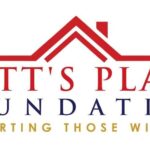
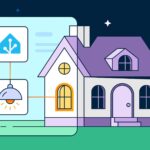
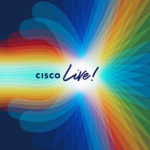

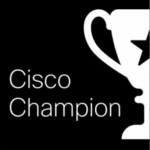
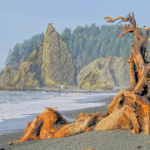
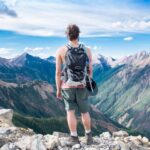
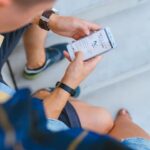
Leave a Reply